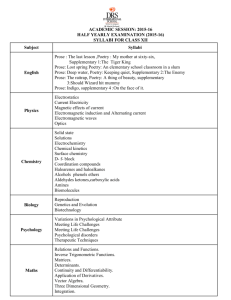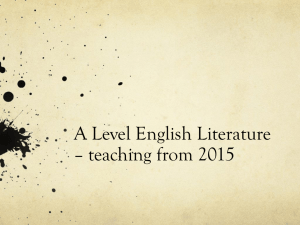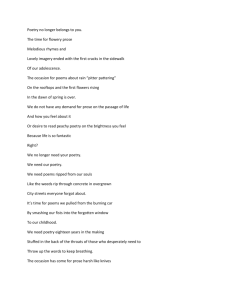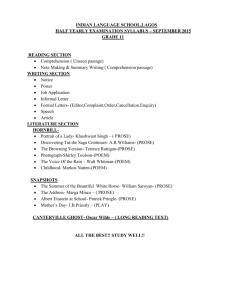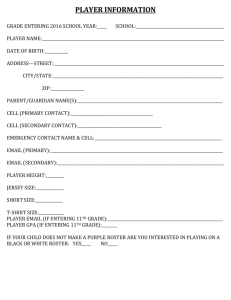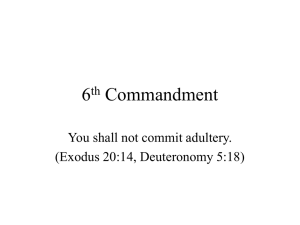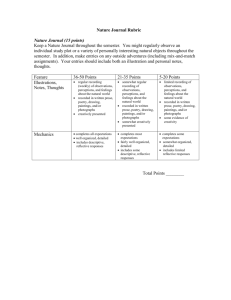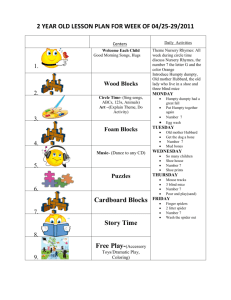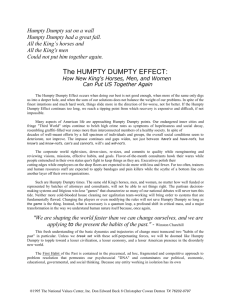ePortfolio
advertisement
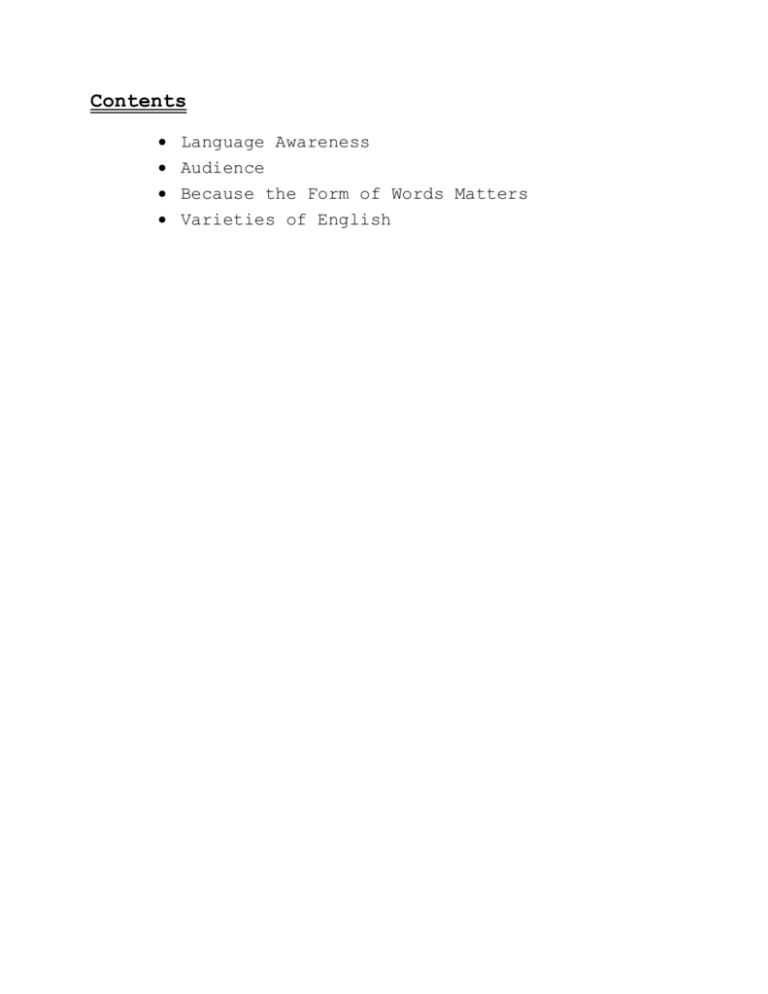
Contents Language Awareness Audience Because the Form of Words Matters Varieties of English Overview I found this to be a very entertaining project. The components were much different than the typical writing assignment and left room for a great deal of creativity. My absolute favorite activity in this portfolio was the language awareness paragraph about language being a web. I felt like I was best able to show my creativity in it when compared to the others. I had a lot of fun writing it and feel like I was able to really get my message across. I really enjoyed the form of words activity about the checkout line item. I love, love poetry and this gave me a chance to write one and be creative about an object which would probably be viewed as quite boring and one which someone would not typically write an entertaining, silly poem about. I didn’t really find any of the activities to be too difficult but I would say that the most challenging was the varieties of English topic in which I translated a commandment. The actual translation part was fairly simple but analyzing the differences in the three versions and what factors played a role in their meanings was the greatest hurdle for me. All of these activities required a fairly in-depth investigation and thought process about writing and language. I made an attempt to use more descriptive and less “run of the mill” word choices in order to add some pizazz and interest to my entries. This in itself forces a good bit of thought over language. Overall, I loved this portfolio project and would definitely like to include it in my own teaching in the future. I believe that it is a very flexible assignment which can be adjusted to grade level and to students’ own levels of understanding and is a great writing practice which will allow for creativity and investigation for students of all ages. Language Awareness When viewing language as a web, I am a meticulous, patient spider. A spider takes a great amount of time and invests much effort into building its web. This process is a well-practiced and perfected art which a spider must view with great pride. This is metaphorical to my outlook on writing. I thoroughly enjoy writing of various types. I was not a pro at it the first time I picked up a pencil or typed a document but, just as a spider does with the construction of webs, I practice, practice, practiced my writing. I like to take the time to “perfect” any type of writing I pursue, put much effort into the process, and am typically very proud of my final product. Unlike the fly who gets caught in the web, lost and hopeless, soon to be consumed, I feel at ease and at home when I write, just a spider does in the web it creates. From an educator’s standpoint, I would view my web of language as a beautiful creation with which I would like to capture my students, engage them, teach them to love writing and hopefully reincarnate those flies into creative, language loving, spiders. Audience If Humpty Dumpty stated, “When I use a word, it means just what I choose it to mean – neither more nor less,” he would be terribly incorrect. Any sentence, phrase, word, etc. that is said by a person, or in this case an oversized egg who falls off of a wall, is taken in numerous different ways dependent upon who hears it. One person may take a statement in a positive way while the next person may take it in a severely negative sense. A question may completely stump someone but be the launch pad for thoughts to another person. A poem composed and recited by its author can touch thousands in the most comforting way while being incredibly controversial to others and lead to outrageous anger. The same goes for single words, as approached by Humpty Dumpty. A simple word can surface many thoughts and emotions in people. It can trigger memories and create new thoughts. The meaning of a word varies depending on audience. Meanings of words transform from person to person, obviously in a personal way rather than the dictionary definition. Humpty Dumpty can’t possibly be right when he says that words can only mean exactly what he chooses them to mean except when talking about his own personal opinion of the words, no one else’s. Because the Form of Words Matters A) Batteries may be found in almost any checkout line you enter. They are very useful to both you and me and something that we tend to take for granted until the time to purchase them comes around again. Batteries power my tools and your toys and are even available in a rechargeable form. B) The Necessary Battery Incredible checkout line battery, your importance is great! You bring life to work tools, And children’s toys. You provide entertainment for gamers and fools. Your necessity is forgotten Until your charge runs dry. Luckily, you can now be recharged. Maybe this type I shall try. C) The poetry version of my battery description is much more entertaining than my prose version. My prose is straightforward, to the point, and somewhat dull. My poetry version, however, has a bit more description and the wording is arranged in a much more entertaining fashion. It is not written in typical sentence form which adds some spark and makes it much more unique. The poetry version is surely more interesting than the prose for these reasons. It also serves more of a purpose and gets the point across much more effectively. The first stanza in my poem says a lot and even contains an extra part that was not included in my prose – the line about “gamers and fools.” I think this adds to the description and makes it a little more fun. The second stanza is fairly simply said but “until your charge runs dry” is a more interesting way of saying what was said in my prose about the time to buy more and “maybe this type I shall try” stresses the importance of batteries and better emphasizes how great a rechargeable version could be. Varieties of English 1) “Thou shalt not commit adultery” (Exodus 20.14). 2) Slang: Don’t be a player! Standard English: Be faithful to your partner. 3) In essence, all three translations of this commandment mean the same thing. The time in which they were stated and to who they are said, however, can have a great impact on the deeper meanings of them. For instance, during the time in which the King James Version translated the first version, “adultery” may have had a much different meaning than it has today. Women were treated much differently during that time than they are today, marriages were different, and the “rules” of marriage were also much different. Moving on to the slang version of the commandment which I translated from the KJV, “Don’t be a player” could have multiple meanings. A “player” (in this instance the one committing adultery) could be labeled by different acts other than sex, all of which, though, are considered adultery, at least in my book. My standard English version is very simple and straightforward although people could put their own definition to the word “faithful.” All of these translations aim at having the same meaning. Like any other statement, however, audience plays a big role in the meaning which is actually conveyed. Different people’s ideas and opinions on what is considered “adultery,” being a “player,” or being “faithful” can completely change what the different versions of the commandment mean to them personally. All of these translations and the wording in them are affected by the time in which they were written. New words such as “player” evolve over time and are created by different cultures, groups, etc. Words can also change meaning dependent upon who is using them. For instance, “Don’t be a player” would likely have evolved in or be heard in a younger, much less professional group, possibly a more “thuggish” environment while “Be faithful to your partner” sounds and may be found in a more sophisticated environment. Like all aspects of language, speaker and audience are the main factors in determining what the intended meaning and the supposed meaning end up being.

